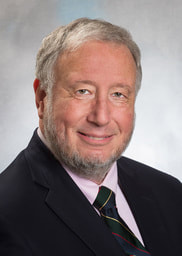 Jerry Avorn, MD, Co-Director, NaRCAD Tags: COVID-19, Detailing Visits, E-Detailing, Jerry Avorn The pandemic has changed everything about our lives and our work. Some occupations have been able to adapt to the new abnormal, such as programmers and financial traders. Others have found it harder to do their jobs as before, like brain surgeons and academic detailers. For the latter, in a socially-distant, avoid-human-contact world, how can we pursue an activity that has as its very definition in-person, interactive communication? Academic detailing programs around the country and the world have been grappling with this challenge. And unlike our colleagues the brain surgeons, we have been able to come up with some plausible solutions, even if nothing is quite the same as being up close and personal. We’ve been learning about the virtues and limits of Zoom/Skype/WebEx. If we’re paying attention, using them can bring into sharp focus the central aspect of interactivity, on steroids. It’s a little like becoming a better runner by strapping weights on your ankles (or so my athletic friends tell me). A non-adept academic detailer can mis-use a Zoom encounter even worse than a face-to-face one: “Sit still for 20 minutes while I do this presentation at you.” That will fail on a platform even more calamitously than it does in person. (One clue is when the prescriber mutes their video to read their e-mail.) But if we’re open to it, the e-encounter can focus our attention even more on whether we’re learning where the clinician is coming from, getting feedback, actively asking what sub-topics they most want us to cover. The artificiality and forced intimacy of a screen-to-screen encounter, and the reason we currently have to do our work like this, can also focus us even more on another key aspect of academic detailing, empathy. “How are you holding up?” or “I bet COVID has really changed your practice” are opening statements that can address the 800-pound virus in the (virtual) room, acknowledging the obvious strangeness and discomfort that afflict so many conversations in these awful times. On a more concrete level, pandemic-style education is also forcing us to come up with new ways to use our educational materials. What to do when you can’t focus a practitioner’s attention on a particular graph or table you’re showing them because they’re dozens of miles away? Displaying a PDF of a document and whizzing around your cursor is one easy, but primitive solution. What about presenting a list of topics hot-linked to a detailed display for each? Or completely re-formatting our materials (stop moaning) for better adaptability to a computer screen?  Those of us who also used to teach in classrooms have learned that with a little work (ok, a lot of work) coronaeducation can even be better than what we’ve been used to doing: using links to video clips or animations, real-time interactive polling, techniques that maybe we could have been using in the classroom, but weren’t. Another key advantage of academic e-Detailing, if we can figure out how to make it work well, is the prospect of having a virtual visit with a clinician without the sunk time of getting to their office – a major enhancement in working with practitioners who may be an hour’s drive or more from the educator’s base. The benefit for our field in productivity and cost-effectiveness could be considerable. Contrary to naïve beliefs that “Soon everyone will be protected by the vaccine and we can get back to normal,” this virus probably won’t let us return fully to the old ways any time soon. Instead, it will force us to mutate our work to cope with it. And in the process, not only will we be able to continue our work, we may even discover better ways of doing it. Be strong and stay safe. Have thoughts on our DETAILS Blog posts? You can head on over to our Discussion Forum to continue the conversation! Biography.
Jerry Avorn, MD, Co-Director, NaRCAD Dr. Avorn is Professor of Medicine at Harvard Medical School and Chief Emeritus of the Division of Pharmacoepidemiology and Pharmacoeconomics (DoPE) at Brigham & Women's Hospital. A general internist, geriatrician, and drug epidemiologist, he pioneered the concept of academic detailing and is recognized internationally as a leading expert on this topic and on optimal medication use, particularly in the elderly. Read More. Comments are closed.
|
Highlighting Best PracticesWe highlight what's working in clinical education through interviews, features, event recaps, and guest blogs, offering clinical educators the chance to share successes and lessons learned from around the country & beyond. Search Archives
|
